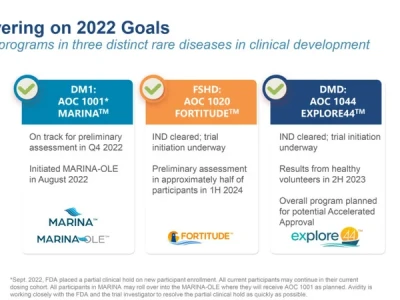Look, I spend most of my days wading through press releases about AI breakthroughs, quantum computing milestones, and multi-billion-dollar funding rounds. It’s exciting stuff, don’t get me wrong. But every once in a while, a piece of news lands in my inbox that feels… different. It’s quieter, more foundational, and it points to a future that’s not just more advanced, but more evenly distributed.
The announcement that the University of Wisconsin-Green Bay is partnering with the global accelerator gener8tor to launch a new program is exactly that kind of news. On the surface, it’s a local story. A university in Northeast Wisconsin is launching a startup accelerator. But I’m telling you, if you zoom out, you’re looking at a blueprint. This is a quiet, powerful signal that the next great wave of American innovation might not come from a gleaming glass tower in Palo Alto, but from the very heartland we’ve been told was left behind.
When I read this, I honestly just sat back in my chair and smiled. This is the kind of breakthrough that reminds me why I got into this field in the first place. It’s not about the gadgets; it’s about unlocking human potential. And what’s happening in Green Bay is a masterclass in exactly that.
A Greenhouse for Buried Ideas
Let’s get the jargon out of the way. The program is called gBETA UW-Green Bay. It’s a “free, seven-week, no-equity pre-accelerator.” In simpler terms, it’s a launchpad that doesn’t demand a piece of your dream before it even has wings. For seven weeks, founders get world-class coaching, access to mentors, and a network of investors—all for free, and without giving up a single share of their fledgling company.
This "no-equity" part is the secret sauce. It demolishes the single biggest barrier for someone with a brilliant idea scribbled on a napkin in a Green Bay coffee shop: the fear of losing control before you’ve even started. It transforms the accelerator from a transaction into a pure investment in people.
Think of it this way: this program isn’t a factory designed to stamp out identical, market-tested widgets. It’s more like a master gardener’s greenhouse. UW-Green Bay and gener8tor aren’t telling people what to grow; they’re creating the perfect conditions—the richest soil, the most consistent light, the precise nutrients—for a thousand different seeds to sprout into whatever they were meant to be. Maybe it’s a new ag-tech solution born from generations of local farming knowledge. Maybe it’s a logistics platform that could only be conceived in a region built on manufacturing and shipping. Or maybe it’s something no one on the coasts could ever even imagine.
What kind of genius has been lying dormant in the soil of Northeast Wisconsin, just waiting for a little bit of sunlight and water? And what happens when you start building these greenhouses all across the country?

The Decentralization of Genius
For decades, we’ve operated under a flawed assumption: that talent is geographically concentrated. We’ve built our entire innovation economy around a few super-dense, hyper-expensive coastal hubs. We created a system that told our brightest minds that to succeed, you had to leave. This partnership in Green Bay is a powerful counter-narrative. It’s a declaration that you can build the future from right where you are.
This isn’t just a university program; it’s the deliberate construction of an ecosystem. You have the university providing the intellectual horsepower—and it’s no coincidence that their Resch School of Engineering’s Electrical Engineering program just received a prestigious ABET accreditation, signaling a serious commitment to technical excellence. You have the county government, led by executives like Troy Streckenbach, seeing the university as an engine for "commercialization." You have the Wisconsin Economic Development Corporation and Associated Bank providing the financial fuel.
This is the part that gives me goosebumps. This is a community looking at its assets and deciding to build its own future, and the potential ripple effect is staggering—it means creating new companies that hire locally, it means building a tax base that supports better schools and infrastructure, and maybe most importantly, it means creating a vibrant culture of possibility that convinces the next generation of innovators that they don’t have to move to California to change the world.
This feels like a 21st-century version of the land-grant university system. In the 19th century, we decided to build world-class institutions dedicated to agriculture and engineering in every state, bringing practical knowledge to the people and unleashing an economic boom. This effort in Green Bay feels like the digital and entrepreneurial equivalent of that brilliant idea. It’s about democratizing the tools of creation.
Of course, with this opportunity comes a profound responsibility. The goal can’t just be to create a few local millionaires. The real challenge is to ensure that the prosperity generated by this new ecosystem is shared broadly, lifting the entire community. How do we ensure the wealth created stays local and benefits everyone, not just the founders? That’s the next critical question they—and we—must answer.
This Is How You Build the Future
For years, we've been talking about economic revitalization and closing the opportunity gap in America. We've seen grand plans and empty political promises. But this? This is what it actually looks like on the ground. It’s not a handout. It’s a foundation.
The coasts don’t have a monopoly on good ideas, and brilliance isn’t confined to a handful of zip codes. Talent is, and always has been, everywhere. It’s the opportunity that has been artificially scarce.
What UW-Green Bay and gener8tor are doing is more than just launching an accelerator. They are turning on the lights in a room full of innovators who have been waiting in the dark. They are building an aqueduct to carry the lifeblood of the new economy—capital, mentorship, and network—to fertile ground that has been thirsty for far too long. This is the real work. This is how you build a stronger, more resilient, and infinitely more interesting America. Watch this space. Better yet, help build one like it where you are.

